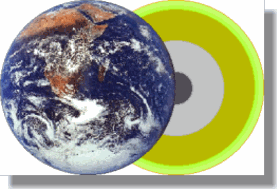Meeting room "Glova", 4 floor, Integrated Research Building

Abstract
Amorphous diamond is a unique carbon material which is characterized by x-ray and electron diffractometry as amorphous in the long-range order and by electron energy loss spectroscopy as diamond in the short-range order. It was first synthesized from C60 fullerene by shock compression and rapid-quenching techniques (Hirai et al., 1991) and also recently obtained from neutron-radiated graphite, which involves a large number of lattice defects, by similar experimental techniques (Niwase et al., 2009). The key for the successful synthesis of amorphous diamond seems to be, 1) the presence of modified sp2-bonded carbon in the starting material to induce simultaneous and homogeneous nucleation of diamond and 2) extremely rapid quenching from high temperature to minimize the grain growth of individual nuclei.
In the present study, we conducted a series of laser-heated diamond anvil cell (LHDAC) experiments using three types of low-crystalline carbon materials (finely-milled graphite, glassy carbon and amorphous carbon) to test whether amorphous diamond can be obtained also by static high pressure experiments. The results suggest that low-crystalline carbon materials which involve a considerable amount of modified sp2 (sp3-like) bondings and relatively low heating temperature (ca. 1500 K) are essential for successful synthesis of amorphous diamond under static high pressure (~25 GPa). The former provides preferential nucleation sites for diamond, resulting in explosive spontaneous nucleation and the latter plays a role in suppressing the subsequent grain growth to freeze the unique amorphous characteristics.
For inquiry:Taku Tsuchiya TEL:(089)927-8198
E-mail takut@sci.ehime-u.ac.jp